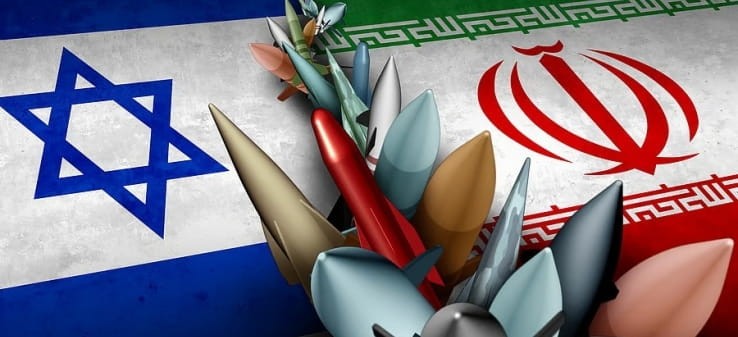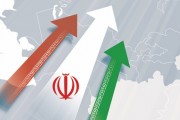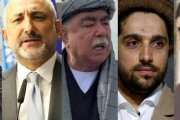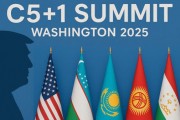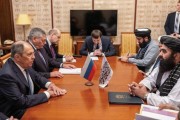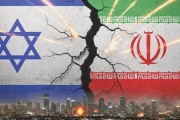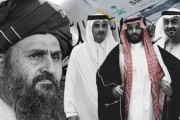How did India and Pakistan react to the 12-day war against Iran?
The conclusion that emerges from an analysis of Pakistan’s overt and semi-overt official and media policies is that Pakistan is pursuing a cautious approach toward the United States while also attempting to seize emerging opportunities. At the same time, if the flip side of these movements is to strengthen the Zionist regime’s foothold, it will pose an existential threat to Pakistan. Pakistan’s economic and military capacities will remain under American oversight. However, Pakistan will not hesitate to use its diplomatic capacity to strengthen Iran's positions. In this way, it will also meet the expectations of its people.
By: Mashallah Shakeri
15 minutes Reading
Introduction
In the early hours of June 13, 2025, the Zionist regime launched an attack on Iran’s territory, which was promptly responded to by Iran. During the 12 days of military confrontation between Iran and the aforementioned regime, numerous reactions emerged from governments and nations, each reflecting the behavioral nature of them. Among all countries, however, the movements and approaches of India and Pakistan are significant for some reasons that will be addressed below.
India
India initially attempted to emphasize its neutrality in this conflict. However, it could not conceal the contradictions in this apparent neutrality. Prime Minister Narendra Modi remained silent for several days after the Zionist regime's attack began; it was only on June 22 that he held a phone conversation with the President of Iran. In this brief discussion, the two sides exchanged views on the “current situation.” Modi expressed his deep concern about the escalation of tensions and recommended “immediate de-escalation” and “dialogue!? and diplomacy” to establish “peace, stability, and security” in the region. It was clear from Modi’s remarks that he avoided condemning the Zionist regime. This conversation occurred only hours after the U.S. entered the war by attacking the nuclear sites in Natanz, Fordow, and Isfahan — yet Modi made no reference to American interventions, either in this call or in subsequent statements.
Perhaps unsurprisingly, on June 13, the very day of the initial invasion, the Prime Minister of the Zionist regime held a phone call with his Indian counterpart, during which he justified his attack on Iranian territory. In that conversation, Modi made no mention of “de-escalation” and merely emphasized the need for “peace and stability in the region.”
Another related event during that period is worth mentioning. On June 12, a day before the Zionist regime’s invasion of Iranian soil, a resolution was adopted in the UN General Assembly calling for an immediate, unconditional, and permanent ceasefire between the fighting forces in Gaza and the invading Zionist army. The resolution demanded that Israel lift its siege on Gaza and keep all crossings open for food aid to reach the people of Gaza. Likely due in part to Netanyahu’s phone call, India was among 19 countries that abstained from voting on this resolution — the only Asian country to do so. The resolution passed with 149 votes in favor, including positive votes from the UK and Australia. India also refused to endorse a statement by the Shanghai Cooperation Organization (SCO), initiated by China, which condemned Israel’s attack on Iran, instead declaring its reservation – It was also Likely due to Netanyahu’s phone call.
Some Indian politicians and analysts, such as Shashi Tharoor (Member of Parliament) and Subrahmanyam Jaishankar (Foreign Minister), attribute this Indian behavior to the country’s “multi-alignment policy.” This is a concept India seeks to project to the international community — portraying itself as a peacebuilder, or at least crafting that image. Nevertheless, when India’s bias becomes evident, its desire to act as a peace actor fades. Given historical precedents, adopting this approach poses great challenges for India, dulling the few tools left at its disposal and, as Dr. Shanthie Mariet D'Souza puts it, turning it into a marginalized element in the international community.
Perhaps a look at statistics and figures can clarify India’s positions. India’s economic ties with Iran, once bright, are now very fragile. India — once a non-aligned nation — ceased purchasing Iranian oil at the behest of the United States. In the past fiscal year, India’s exports to Iran amounted to $1.25 billion, while its imports from our country were negligible. Those who recall the latest session of the two countries’ joint commission on May 8 this year (amid the recent India – Pakistan war) need no further elaboration. The form and process of India’s participation in the Chabahar Port development program — despite being exaggerated by Indian authorities — further reflects its economic policy toward Iran. For years, India has made only minimal investments in the port, serving merely as a pretext for its agents to maintain a presence there. In fact, India’s involvement has not led to any significant increase in traffic within Iran’s transportation chain. Despite this, Indian observers consider the Chabahar project as the only prominent aspect of the two countries’ cooperation!
According to last reports, the Zionist regime sold $2.9 billion in weaponry to India. Moreover, India is the regime’s second-largest commercial partner in merchandise in Asia. In 2023, excluding arms deals, this trade volume reached $10.77 billion. Tel Aviv holds a special place among the countries participating in the India-Middle East Economic Corridor (IMEC). During India’s military confrontation with Pakistan, the regime explicitly provided political, intelligence, and arms support to India.
Nevertheless, at the level of Indian public opinion and society — especially among Muslims — there were some instances of public support for the Islamic Republic of Iran. Additionally, segments of India’s political sphere, such as the Congress Party and leftist factions, criticized the government’s stance. Sonia Gandhi, the opposition Congress Party leader, described the government’s behavior as a “disturbing departure from India’s moral and traditional principles.” However, it is unlikely that Gandhi’s remarks and some displays of public sympathy with Iran will have much effect on the BJP government's positions.
Still, some analyses in Indian media suggest that India needs to revise its West Asia policy to reinforce its position as a mediator, and simultaneously balance its defense and economic interests. If the Indian scenario is to be given the due weight it deserves, this vague statement needs to be given more attention.
Pakistan
In Pakistan, public and official reactions were markedly different. On July 1, Prime Minister Shehbaz Sharif, along with several government officials and cabinet members, visited the Embassy of the Islamic Republic of Iran in Islamabad and signed the memorial book for the martyrs of the Zionist regime’s aggression. According to the Islamic Republic News Agency (IRNA), the Pakistani Prime Minister’s Office issued a statement declaring that Shehbaz Sharif, during his meeting with the Iranian ambassador, assured Iran of Pakistan’s strong and unwavering support. The Prime Minister expressed deep appreciation for the resistance and bravery of the Iranian people and offered prayers for the martyrs of the incident and a swift recovery for the wounded. He also conveyed warm greetings and best wishes to Ayatollah Khamenei, the Supreme Leader of the Islamic Revolution, and Dr. Masoud Pezeshkian, the President of Iran.
According to another IRNA report, during the 12-day military confrontation, Pakistani Muslims, along with the country's political leaders and officials, took to the streets to condemn the Zionist regime’s terrorist attack on Iran, voicing solidarity with Iran against Israel and its supporters. Concurrently, as resolutions condemning the Zionist occupiers’ aggression against Iran were passed in both the Senate and National Assembly of Pakistan, anti-Zionist rallies were held in Islamabad, Lahore, Skardu, Karachi, and Hyderabad, where people chanted slogans such as “Death to Israel” and “Death to America.”
In Pakistan, the situation was significantly different. The Pakistani people, political establishment, and popular circles showed remarkable solidarity with the Iranian nation and government. Pakistan’s political support in international forums is also commendable. The Pakistani delegation to the United Nations, alongside China and Russia, presented a draft resolution emphasizing the necessity of a ceasefire and adherence to international law. This draft was submitted after the U.S. launched aggressive strikes on three of Iran’s nuclear sites. Pakistani newspapers also unequivocally condemned these aggressions as unjustified, based on legal reasoning.
Numerous prominent figures in Pakistan formally condemned the Israeli regime’s aggression. Among them were President Asif Ali Zardari, Prime Minister Shehbaz Sharif, Foreign Minister Ishaq Dar, Maulana Fazlur Rehman, Allama Raja Nasir—both notable political figures—and Maleeha Lodhi, former ambassador to the United Nations and a political analyst.
It is also necessary to examine the 12-day war from Pakistan’s perspective and through another lens. During a four-day visit to the United States, Pakistan’s Chief of Army Staff, General Asim Munir, attended an unprecedented luncheon hosted at the White House—an event that had no prior parallel in the history of U.S.-Pakistan relations. The question of why, for the first time, an American president would host a luncheon for a Pakistani military official generated various interpretations. However, for General Munir and his delegation, the event appeared both surprising and exhilarating. The outcomes of the luncheon were not widely publicized, and the media only quoted a brief remark from Donald Trump addressed to the General: “Pakistanis know Iran better than most,” adding, “It's not that they're bad with Israel.” Following the luncheon, General Munir canceled many of his scheduled events in the U.S. and proceeded to his next destination, Turkey.
This event, which Pakistani political circles referred to as a “realignment with the U.S.,” seemed to satisfy the General enough that he deemed further pursuit of his original itinerary unnecessary. The luncheon itself, unprecedented for Pakistan or similar countries, also appeared remarkable in the calendar of relations between the two countries.
In February 2025, one month after Donald Trump’s return to power, a joint statement issued by India and the United States accused Pakistan of cross-border terrorism. Trump’s renewed focus on containing China had implications for Pakistan, as in May 2025, the U.S. explicitly asked Pakistan to scale back the role of the China-Pakistan Economic Corridor (CPEC) in its economic ties with China. Simultaneously, the U.S. suspended its economic aid to Pakistan through USAID.
In March 2025, Husain Haqqani, former Pakistani ambassador to Washington, noted that Pakistan was no longer a priority in U.S. foreign policy—unless terrorism again directly threatened American interests, or the U.S. became embroiled in a confrontation with Iran. In fact, Washington’s China containment strategy and its strategic partnership with India had already pushed Pakistan to the periphery. Additionally, the withdrawal of U.S. forces from Afghanistan and the diminishing relevance of Pakistan as a transit corridor further reduced its strategic value in South Asia. Now, Husain Haqqani's last sentence reveals another meaning of Donald Trump's lunch: America is well aware of the military-centered power structure in Pakistan and probably plays a role in the consolidation of such power. There is ample historical evidence supporting this notion.
While this text was being written, IRNA citing a statement from the PAF’s Directorate General of Public Relations (DGPR) in Islamabad, reported that the Commander of the Pakistan Air Force paid an official visit to the U.S., where he held meetings with U.S. military officials, Pentagon authorities, and some American political figures. The discussions centered on deepening strategic and defense cooperation as well as regional and global developments. This visit by Air Chief Marshal Zaheer Ahmed Baber - the first by a high-ranking Air Force official in over a decade - came less than two weeks after the visit of General Syed Asim Munir, Pakistan’s five-star army chief, to the United States and his meeting with President Donald Trump. The DGPR also emphasized that the Air Force Commander, in his meetings with American officials, outlined “Pakistan’s evolving security calculus in response to the rapidly shifting regional geopolitical landscape.”
It is noteworthy that - to the astonishment of many observers and political circles in Pakistan - the Pakistani government recently nominated Donald Trump for the Nobel Peace Prize, citing his intervention in de-escalating the recent military confrontation between India and Pakistan. However, Indian Foreign Secretary Vikram Misri, denied Trump had played any such role and categorically rejected Pakistan’s claim. This decision by the Pakistani government sparked backlash among political and media figures in the country, including prominent journalist Hamid Mir.
The interpretation of these events and the exchange of remarks between Pakistani and American officials is left to the readers.
Following the Zionist and U.S. attack on Iran—and the subsequent retaliatory responses— the tone of analysis in the media close to the Pakistani government appeared to be different. What stood out was the concern within relevant circles over the potential expansion of the conflict and the risk that the enemies of the Islamic Republic of Iran might achieve their objective through such attacks. What they described—borrowing the terminology of Western hostile media—as “regime change,” had multiple scenarios developed in Western circles, including by figures like Vali Nasr. These scenarios included the fragmentation of Iran, the outbreak of prolonged internal unrest, the establishment of a monarchist regime or a secular Western-leaning government.
According to Ejaz Haider, a security analyst close to the Pakistani establishment, In any of these scenarios, a foothold would be created for Israel to enter Iranian territory. In other words, any weakening of the current governing system in Iran —even if it doesn’t result in a complete transformation—would ultimately benefit the Zionist regime and ease its infiltration into Iran. For Pakistan, any disruption in Iran’s socio-political structure through an external shock would be deeply problematic. Pakistan's geographical proximity to Iran means that any unrest in Iran increases security threats to Pakistan. Social unrest could spill over into Balochistan, bringing with it destructive economic and security consequences. If a pro-Israel regime were to take hold in Iran, Pakistan would then face security and intelligence threats from both its eastern front (existing threat) and its southwestern one (potential threat).
Although Pakistan lacks the capacity to neutralize external shocks on Iran, it must prepare for worst-case scenarios. Simultaneously, it must make all its diplomatic efforts to help de-escalate the situation.
Though Pakistan may appear to be on the sidelines of the crisis, it cannot ignore its secondary and tertiary effects. Political instability in Iran could negatively impact Pakistan’s internal security by exacerbating ethnic and sectarian tensions, and could jeopardize Pakistan’s efforts to maintain political balance between the Persian Gulf Arab states and Iran. Economic weakness would further strain Pakistan’s diplomatic challenges. In such a scenario, Pakistan would need to improve its cooperation with Persian Gulf countries as well as the United States. At the same time, Pakistan’s relationships with Turkey and Azerbaijan—both of significant importance—require careful attention and management, particularly as Iran’s relations with Turkey and especially Azerbaijan remain tense.
Economic insecurity and the illicit trade in drugs, weapons, and human trafficking in politically unstable regions also pose significant threats to Pakistan. It would be deeply naïve to assume that Israel regime would not exploit this fragmentation to expand its influence in the region. Israel’s ambitions will not end with Iran. Given the strategic partnership between India and Israel, it is certain that the latter will assist the former, thereby creating further complications for Pakistan.
The conclusion that emerges from an analysis of Pakistan’s overt and semi-overt official and media policies is that Pakistan is pursuing a cautious approach toward the United States while also attempting to seize emerging opportunities. At the same time, if the flip side of these movements is to strengthen the Zionist regime’s foothold, it will pose an existential threat to Pakistan. Pakistan’s economic and military capacities will remain under American oversight. However, Pakistan will not hesitate to use its diplomatic capacity to strengthen Iran's positions. In this way, it will also meet the expectations of its people.
Mashallah Shakeri is s Senior Expert on the Indian Subcontinent.
15 minutes Reading
How did India and Pakistan react to the 12-day war against Iran?
Introduction
In the early hours of June 13, 2025, the Zionist regime launched an attack on Iran’s territory, which was promptly responded to by Iran. During the 12 days of military confrontation between Iran and the aforementioned regime, numerous reactions emerged from governments and nations, each reflecting the behavioral nature of them. Among all countries, however, the movements and approaches of India and Pakistan are significant for some reasons that will be addressed below.
India
India initially attempted to emphasize its neutrality in this conflict. However, it could not conceal the contradictions in this apparent neutrality. Prime Minister Narendra Modi remained silent for several days after the Zionist regime's attack began; it was only on June 22 that he held a phone conversation with the President of Iran. In this brief discussion, the two sides exchanged views on the “current situation.” Modi expressed his deep concern about the escalation of tensions and recommended “immediate de-escalation” and “dialogue!? and diplomacy” to establish “peace, stability, and security” in the region. It was clear from Modi’s remarks that he avoided condemning the Zionist regime. This conversation occurred only hours after the U.S. entered the war by attacking the nuclear sites in Natanz, Fordow, and Isfahan — yet Modi made no reference to American interventions, either in this call or in subsequent statements.
Perhaps unsurprisingly, on June 13, the very day of the initial invasion, the Prime Minister of the Zionist regime held a phone call with his Indian counterpart, during which he justified his attack on Iranian territory. In that conversation, Modi made no mention of “de-escalation” and merely emphasized the need for “peace and stability in the region.”
Another related event during that period is worth mentioning. On June 12, a day before the Zionist regime’s invasion of Iranian soil, a resolution was adopted in the UN General Assembly calling for an immediate, unconditional, and permanent ceasefire between the fighting forces in Gaza and the invading Zionist army. The resolution demanded that Israel lift its siege on Gaza and keep all crossings open for food aid to reach the people of Gaza. Likely due in part to Netanyahu’s phone call, India was among 19 countries that abstained from voting on this resolution — the only Asian country to do so. The resolution passed with 149 votes in favor, including positive votes from the UK and Australia. India also refused to endorse a statement by the Shanghai Cooperation Organization (SCO), initiated by China, which condemned Israel’s attack on Iran, instead declaring its reservation – It was also Likely due to Netanyahu’s phone call.
Some Indian politicians and analysts, such as Shashi Tharoor (Member of Parliament) and Subrahmanyam Jaishankar (Foreign Minister), attribute this Indian behavior to the country’s “multi-alignment policy.” This is a concept India seeks to project to the international community — portraying itself as a peacebuilder, or at least crafting that image. Nevertheless, when India’s bias becomes evident, its desire to act as a peace actor fades. Given historical precedents, adopting this approach poses great challenges for India, dulling the few tools left at its disposal and, as Dr. Shanthie Mariet D'Souza puts it, turning it into a marginalized element in the international community.
Perhaps a look at statistics and figures can clarify India’s positions. India’s economic ties with Iran, once bright, are now very fragile. India — once a non-aligned nation — ceased purchasing Iranian oil at the behest of the United States. In the past fiscal year, India’s exports to Iran amounted to $1.25 billion, while its imports from our country were negligible. Those who recall the latest session of the two countries’ joint commission on May 8 this year (amid the recent India – Pakistan war) need no further elaboration. The form and process of India’s participation in the Chabahar Port development program — despite being exaggerated by Indian authorities — further reflects its economic policy toward Iran. For years, India has made only minimal investments in the port, serving merely as a pretext for its agents to maintain a presence there. In fact, India’s involvement has not led to any significant increase in traffic within Iran’s transportation chain. Despite this, Indian observers consider the Chabahar project as the only prominent aspect of the two countries’ cooperation!
According to last reports, the Zionist regime sold $2.9 billion in weaponry to India. Moreover, India is the regime’s second-largest commercial partner in merchandise in Asia. In 2023, excluding arms deals, this trade volume reached $10.77 billion. Tel Aviv holds a special place among the countries participating in the India-Middle East Economic Corridor (IMEC). During India’s military confrontation with Pakistan, the regime explicitly provided political, intelligence, and arms support to India.
Nevertheless, at the level of Indian public opinion and society — especially among Muslims — there were some instances of public support for the Islamic Republic of Iran. Additionally, segments of India’s political sphere, such as the Congress Party and leftist factions, criticized the government’s stance. Sonia Gandhi, the opposition Congress Party leader, described the government’s behavior as a “disturbing departure from India’s moral and traditional principles.” However, it is unlikely that Gandhi’s remarks and some displays of public sympathy with Iran will have much effect on the BJP government's positions.
Still, some analyses in Indian media suggest that India needs to revise its West Asia policy to reinforce its position as a mediator, and simultaneously balance its defense and economic interests. If the Indian scenario is to be given the due weight it deserves, this vague statement needs to be given more attention.
Pakistan
In Pakistan, public and official reactions were markedly different. On July 1, Prime Minister Shehbaz Sharif, along with several government officials and cabinet members, visited the Embassy of the Islamic Republic of Iran in Islamabad and signed the memorial book for the martyrs of the Zionist regime’s aggression. According to the Islamic Republic News Agency (IRNA), the Pakistani Prime Minister’s Office issued a statement declaring that Shehbaz Sharif, during his meeting with the Iranian ambassador, assured Iran of Pakistan’s strong and unwavering support. The Prime Minister expressed deep appreciation for the resistance and bravery of the Iranian people and offered prayers for the martyrs of the incident and a swift recovery for the wounded. He also conveyed warm greetings and best wishes to Ayatollah Khamenei, the Supreme Leader of the Islamic Revolution, and Dr. Masoud Pezeshkian, the President of Iran.
According to another IRNA report, during the 12-day military confrontation, Pakistani Muslims, along with the country's political leaders and officials, took to the streets to condemn the Zionist regime’s terrorist attack on Iran, voicing solidarity with Iran against Israel and its supporters. Concurrently, as resolutions condemning the Zionist occupiers’ aggression against Iran were passed in both the Senate and National Assembly of Pakistan, anti-Zionist rallies were held in Islamabad, Lahore, Skardu, Karachi, and Hyderabad, where people chanted slogans such as “Death to Israel” and “Death to America.”
In Pakistan, the situation was significantly different. The Pakistani people, political establishment, and popular circles showed remarkable solidarity with the Iranian nation and government. Pakistan’s political support in international forums is also commendable. The Pakistani delegation to the United Nations, alongside China and Russia, presented a draft resolution emphasizing the necessity of a ceasefire and adherence to international law. This draft was submitted after the U.S. launched aggressive strikes on three of Iran’s nuclear sites. Pakistani newspapers also unequivocally condemned these aggressions as unjustified, based on legal reasoning.
Numerous prominent figures in Pakistan formally condemned the Israeli regime’s aggression. Among them were President Asif Ali Zardari, Prime Minister Shehbaz Sharif, Foreign Minister Ishaq Dar, Maulana Fazlur Rehman, Allama Raja Nasir—both notable political figures—and Maleeha Lodhi, former ambassador to the United Nations and a political analyst.
It is also necessary to examine the 12-day war from Pakistan’s perspective and through another lens. During a four-day visit to the United States, Pakistan’s Chief of Army Staff, General Asim Munir, attended an unprecedented luncheon hosted at the White House—an event that had no prior parallel in the history of U.S.-Pakistan relations. The question of why, for the first time, an American president would host a luncheon for a Pakistani military official generated various interpretations. However, for General Munir and his delegation, the event appeared both surprising and exhilarating. The outcomes of the luncheon were not widely publicized, and the media only quoted a brief remark from Donald Trump addressed to the General: “Pakistanis know Iran better than most,” adding, “It's not that they're bad with Israel.” Following the luncheon, General Munir canceled many of his scheduled events in the U.S. and proceeded to his next destination, Turkey.
This event, which Pakistani political circles referred to as a “realignment with the U.S.,” seemed to satisfy the General enough that he deemed further pursuit of his original itinerary unnecessary. The luncheon itself, unprecedented for Pakistan or similar countries, also appeared remarkable in the calendar of relations between the two countries.
In February 2025, one month after Donald Trump’s return to power, a joint statement issued by India and the United States accused Pakistan of cross-border terrorism. Trump’s renewed focus on containing China had implications for Pakistan, as in May 2025, the U.S. explicitly asked Pakistan to scale back the role of the China-Pakistan Economic Corridor (CPEC) in its economic ties with China. Simultaneously, the U.S. suspended its economic aid to Pakistan through USAID.
In March 2025, Husain Haqqani, former Pakistani ambassador to Washington, noted that Pakistan was no longer a priority in U.S. foreign policy—unless terrorism again directly threatened American interests, or the U.S. became embroiled in a confrontation with Iran. In fact, Washington’s China containment strategy and its strategic partnership with India had already pushed Pakistan to the periphery. Additionally, the withdrawal of U.S. forces from Afghanistan and the diminishing relevance of Pakistan as a transit corridor further reduced its strategic value in South Asia. Now, Husain Haqqani's last sentence reveals another meaning of Donald Trump's lunch: America is well aware of the military-centered power structure in Pakistan and probably plays a role in the consolidation of such power. There is ample historical evidence supporting this notion.
While this text was being written, IRNA citing a statement from the PAF’s Directorate General of Public Relations (DGPR) in Islamabad, reported that the Commander of the Pakistan Air Force paid an official visit to the U.S., where he held meetings with U.S. military officials, Pentagon authorities, and some American political figures. The discussions centered on deepening strategic and defense cooperation as well as regional and global developments. This visit by Air Chief Marshal Zaheer Ahmed Baber - the first by a high-ranking Air Force official in over a decade - came less than two weeks after the visit of General Syed Asim Munir, Pakistan’s five-star army chief, to the United States and his meeting with President Donald Trump. The DGPR also emphasized that the Air Force Commander, in his meetings with American officials, outlined “Pakistan’s evolving security calculus in response to the rapidly shifting regional geopolitical landscape.”
It is noteworthy that - to the astonishment of many observers and political circles in Pakistan - the Pakistani government recently nominated Donald Trump for the Nobel Peace Prize, citing his intervention in de-escalating the recent military confrontation between India and Pakistan. However, Indian Foreign Secretary Vikram Misri, denied Trump had played any such role and categorically rejected Pakistan’s claim. This decision by the Pakistani government sparked backlash among political and media figures in the country, including prominent journalist Hamid Mir.
The interpretation of these events and the exchange of remarks between Pakistani and American officials is left to the readers.
Following the Zionist and U.S. attack on Iran—and the subsequent retaliatory responses— the tone of analysis in the media close to the Pakistani government appeared to be different. What stood out was the concern within relevant circles over the potential expansion of the conflict and the risk that the enemies of the Islamic Republic of Iran might achieve their objective through such attacks. What they described—borrowing the terminology of Western hostile media—as “regime change,” had multiple scenarios developed in Western circles, including by figures like Vali Nasr. These scenarios included the fragmentation of Iran, the outbreak of prolonged internal unrest, the establishment of a monarchist regime or a secular Western-leaning government.
According to Ejaz Haider, a security analyst close to the Pakistani establishment, In any of these scenarios, a foothold would be created for Israel to enter Iranian territory. In other words, any weakening of the current governing system in Iran —even if it doesn’t result in a complete transformation—would ultimately benefit the Zionist regime and ease its infiltration into Iran. For Pakistan, any disruption in Iran’s socio-political structure through an external shock would be deeply problematic. Pakistan's geographical proximity to Iran means that any unrest in Iran increases security threats to Pakistan. Social unrest could spill over into Balochistan, bringing with it destructive economic and security consequences. If a pro-Israel regime were to take hold in Iran, Pakistan would then face security and intelligence threats from both its eastern front (existing threat) and its southwestern one (potential threat).
Although Pakistan lacks the capacity to neutralize external shocks on Iran, it must prepare for worst-case scenarios. Simultaneously, it must make all its diplomatic efforts to help de-escalate the situation.
Though Pakistan may appear to be on the sidelines of the crisis, it cannot ignore its secondary and tertiary effects. Political instability in Iran could negatively impact Pakistan’s internal security by exacerbating ethnic and sectarian tensions, and could jeopardize Pakistan’s efforts to maintain political balance between the Persian Gulf Arab states and Iran. Economic weakness would further strain Pakistan’s diplomatic challenges. In such a scenario, Pakistan would need to improve its cooperation with Persian Gulf countries as well as the United States. At the same time, Pakistan’s relationships with Turkey and Azerbaijan—both of significant importance—require careful attention and management, particularly as Iran’s relations with Turkey and especially Azerbaijan remain tense.
Economic insecurity and the illicit trade in drugs, weapons, and human trafficking in politically unstable regions also pose significant threats to Pakistan. It would be deeply naïve to assume that Israel regime would not exploit this fragmentation to expand its influence in the region. Israel’s ambitions will not end with Iran. Given the strategic partnership between India and Israel, it is certain that the latter will assist the former, thereby creating further complications for Pakistan.
The conclusion that emerges from an analysis of Pakistan’s overt and semi-overt official and media policies is that Pakistan is pursuing a cautious approach toward the United States while also attempting to seize emerging opportunities. At the same time, if the flip side of these movements is to strengthen the Zionist regime’s foothold, it will pose an existential threat to Pakistan. Pakistan’s economic and military capacities will remain under American oversight. However, Pakistan will not hesitate to use its diplomatic capacity to strengthen Iran's positions. In this way, it will also meet the expectations of its people.
Mashallah Shakeri is s Senior Expert on the Indian Subcontinent.
News code:4066




